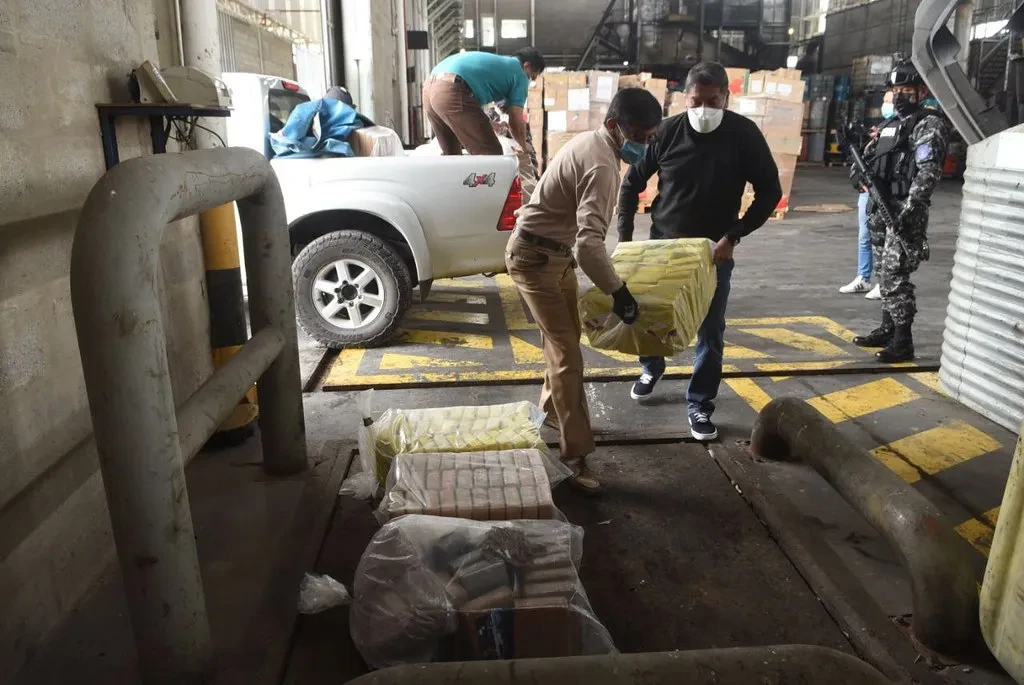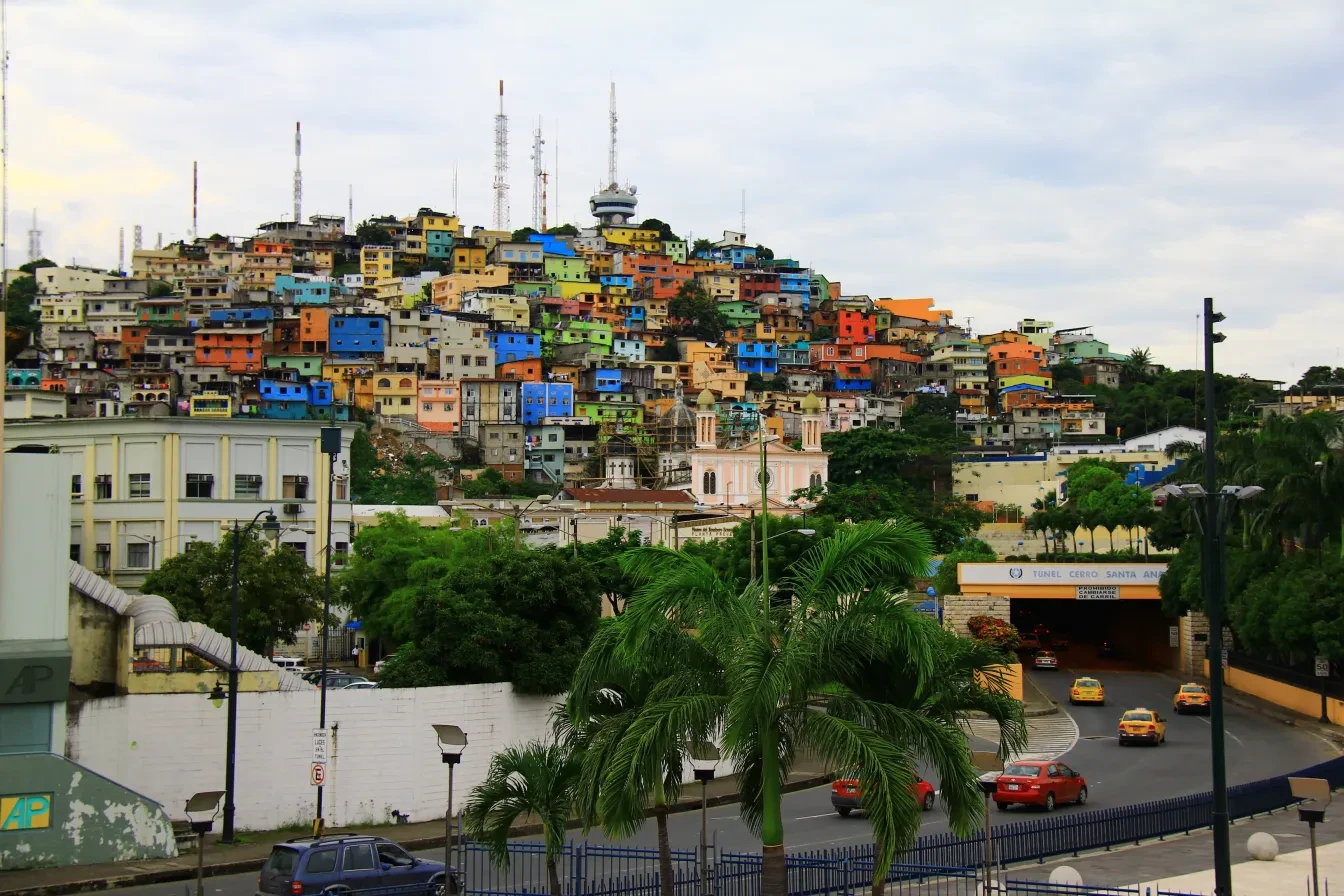Drug Violence in Ecuador: 5 Questions and Answers with our Expert Freya
January 15, 2024
5 minutes
Chaos. That is the only word that seems to describe the current situation in Ecuador. The government's measures - after the escape of the notorious drug criminal Fito - have led to a spiral of violence. How did it ever get to this point? What is the impact on the general population? And can peace ever return? 11.11.11-expert Freya Rondelez answers our 5 questions.
How did the violence suddenly escalate?
After notorious drug criminal Adolfo Macías Villamar, alias Fito, escaped from prison, the government announced measures to tackle criminal gangs. Then the violence escalated, with open warfare between the gangs and the Ecuadorian army. In several prisons in the country, the state has completely lost control and gangs are calling the shots. The situation has gotten completely out of hand after armed men have entered a national television studio. In the past, violent situations were mainly concentrated in the port city of Guayaquil, but crime and violence have now spread. Meanwhile, most of the coastal areas are in the grip of crime, including the capital Quito.
Has Ecuador always been plagued by drug gangs?
No, certainly not. Ecuador used to be an oasis of peace. The violence is only increased sharply in recent years, together with the power of criminal gangs. Various factors played a role in this. For example, Ecuador was already a transit country for cocaine from Colombia and Peru, but the organized gangs were not yet so strong. Now they are because they have more contacts with big mafias from other countries, such as Mexico, Colombia and even Albania, and have adopted criminal practices.
The gangs have also increased their activities in recent years expanded to include other lucrative illegal activities. Drugs are no longer just shipped abroad, but also traded on the local market. This creates a lot of rivalry between different gangs who want to take control of entire neighborhoods. Extortion is one way to do this. And a large part of the population is the victim of this. Shopkeepers, big and small, and even street vendors, have to pay 'vacuna' or protection money to the local mafia if they want to avoid trouble. Also, more and more kidnappings place to demand ransom.

In addition, the bad economic situation and increased inequality the situation. The measures to cut social spending have undermined state institutions. People, especially young people, are falling for the idea that you can make money quickly and easily by dealing drugs.
Finally, the corona pandemic the cocaine trafficking routes, and there was more chaos due to reduced police control in working-class neighborhoods.
Little by little the drug mafia gained more power. On the one hand, with the control of a number of prisons, and the struggle for power between gangs in those same prisons. On the other hand, with their infiltration at all levels of the state: from the police to the army, but also the judiciary and the political worldBribery and kickbacks allow criminals to continue their illegal practices.
The violent events of the past week are all about the power play of the gangs, who want to maintain and further expand control and power.
What is the impact on the population?
A large part of the Ecuadorian population lives in poverty. That makes them, and especially young people, very vulnerable to drug gangs. They recruit with the attractive prospect of making money quickly and easily. All the ingredients for a spiral of violence.
The violence mainly takes place in the streets with many robberies, kidnappings and also more and more murdersThe population lives in fear and no longer dares to go out at night. A state of emergency has now been declared and a curfew is in effect.

What is the government doing to stop the violence?
The new president Daniel Noboa takes measures to stop gang violence and regain control of prisons. Of course, that is not self-evident and there is also a lack of transparency. At the moment, the 'Fénix plan' is said to be on the table, but it is far from clear what that plan entails. It seems to be mainly populist measures that respond to the call of a large part of the population to eliminate the gangs and restore safety.
But in reality, things are often different and in these situations negotiations are also started with gangs. The government of former president Lasso is said to have been in talks with a number of gangs about a kind of peace agreement.
Can peace ever return?
President Noboa has labeled gang violence as an internal war between gangs and military, and has opted for an authoritarian approach. However, this is not a good long-term solution and only fuels the spiral of violence. This also says 11.11.11-partner, Ecological Action, and other civil society organizations. They condemn the violence and demand that the Ecuadorian state come up with structural solutions.
Our partners are putting pressure on the government to come up with a security plan that respects human rights, controls and limits gangs' sources of income, and the curbs gang infiltration into the stateIn addition, according to them, there must also be more investment in the social sector, such as education, health care and employment, to counter inequality. Young people who are now attracted by drug money must see other future opportunities.
Ecuador will anyway need support from the international community to stop drug trafficking and violence. The country is also high on Belgium's agenda because most of the cocaine that enters the port of Antwerp comes from there. But international solidarity is also essential in other areas, such as limiting the debt burden, to give the state breathing space to invest in an effective economic and security policy.
Do you support our partners in Ecuador?
Together with partners in Ecuador, we are fighting against the increasing violence and power of drug gangs that disrupt the daily lives of millions of people. With your support, we can make a difference.

